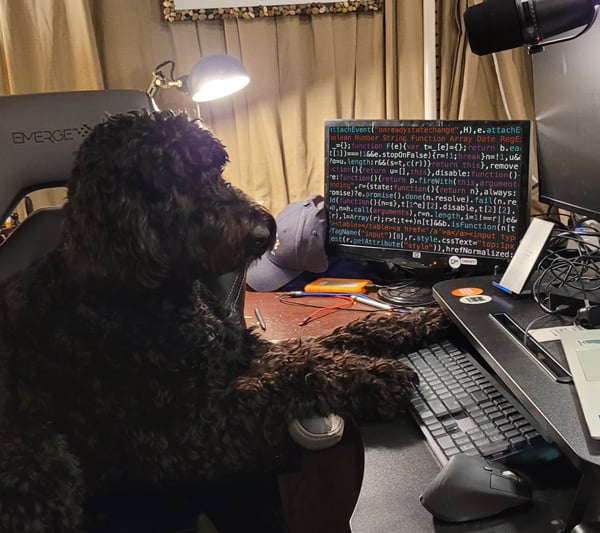No judgement? Do you use strategies or meds or both? I’m curious.
For me both. But without my meds I’m pretty useless.

I wish I could use lists. If I decide something, then–according to my brain–it’s not a rule I strictly have to follow. Help lol 🫠

Of course our brains have to be shit roomates, as if life isn’t hard enough

Medication, alarms, chore lists with reminders, project boards (jira @ work, notion @ home).
My wife and I keep EVERYTHING in notion. Our entire lives, pretty much any plan or thing we need to remember to do or communicate goes in that app.
I use other stuff on top of it, but notion has allowed us to split the mental load of managing our household much better than before. I have terrible memory, but I can no longer use it as an excuse. I’ve gone from “oops I forgot” to “oops I didn’t set a reminder, what do I need to do to prevent this in the future?”
It wouldn’t be exaggerating to say that the combination of process and home project management through it has saved my marriage. Oh, and I guess therapy helps. Find a good therapist if you can afford one.
You’re more organized that I am. Wow! Good for you! Glad it’s working!

I’d say that my wife is the organized one - she just makes it easy to take advantage of the organization and contribute content to it.
She sounds like a great partner for you! 😁

I use Habitica and Forest. I try to gamify everything. Also rewarding myself for staying on track with 10 to 30 minutes of video games. I find I like audiobooks and podcasts to be in the background when I’m studying. I also use the Calm app a lot when I’m working. I like the city and coffee shop soundscapes. I’ve listed to This American Life Cars 129 about 50 times while doing my literature review. I am working full time, my wife and I have a new baby and I am also getting my doctorate. Another key strategy is waking up early like 5 AM to do a self-care routine to start the day. I meditate and exercise as part of my Habitica habits. It helps me get focused and feel ready for the day. I never took any medication growing up although the doctor recommended it. My parents made me meditate every day for 30 minutes when I got home from school and on weekends. I was basically grounded until I did that. It helped a lot for me. Those are some of my strategies.
All great strategies.

Meds and lists gang checking in.
Started Trintellix a couple months ago and has been working pretty well with no noted side effects, which is nice.

To clarify, are you using vortioxetine (Brintellix) for what exactly? Because it’s not an ADHD medication.
Edit: I’m also asking because I’m taking it as well, and I was curious about your experience.

Depression is what I was prescribed to it for. It is working well to manage that, which makes it easier for me to better tackle the ADHD.

I’m nearing the end of my first month on Wellbutrin. I have pretty bad dopamine deficiency that leads to executive disfunction, depression and anxiety. So far the last few weeks have been great on it.

Seems like most of us are “list people”.
How do you all prevent the list from growing too large and just becoming another overwhelming thing?
Good question. I tend to try and keep the most important on one list and then try really hard to put the less important somewhere else. LOL

I got a list that I purposefully set up to grow. It’s not a to-do list… It’s a “might do” list. When things get messy in my to-do list, I move those items to the might-do list.
Having 100 undone items on that list isn’t a shameful thing, it means I said “no” to all those items (either actively or passively) and I try to celebrate that.

Multiple lists. Short-term, medium-term, long-term, “maybe eventually”. If one of them starts to feel like too much, I can kick some things down to the next one.
They’re also kinda based on how much focus will be needed to complete things, not just how important or time-sensitive things are. The medium/long lists are mostly stuff for “good brain days”.
I also don’t know what I’d do without a to do list to check off and my Google calendar.
Also my Remarkable 2 Tablet has been a god send.
Man this thread isn’t one bit written by a person with ADHD. Is it? LOL

I use both but I’m terrible at taking meds regularly (ha, the irony!).
For losing track of time during meetings/focus sessions, I use a Time Timer to visually see time passing by/showing how much time is left.
For reminders, I use Due on iOS (+ Apple Watch) as it continues to send reminders until you do the thing and check it off.
For to-do lists, I use both paper planning with a bullet journal-esque notation as well as a whiteboard for “temporary” planning, like creating a prioritization matrix, as it allows me to shift things around more easily.
Can definitely second Time Timer, nothing else has worked nearly as well for monitoring time passing!

People who believe that adhd meds are addictive have apparently never met someone with ADHD.

I’m absolutely horrific with organisation, but I found a few ways of managing things. I never really managed to grasp notifications, eventually they just became an auto-ignore for my brain. What worked more for me was having hints of what I need to do in places that I would naturally look throughout my day.
For instance, with my iPhone, I use dynamic island to keep my current task in a persistent way. It’s not forceful and it doesn’t interrupt what I’m currently doing. I’ve also got a large widget on my home screen which shows me some things like weather, date, reminders and calendar events. I see it a few times and eventually I usually manage to enact on it. I unlock my iPhone more than 100+ times per day, so that’s 100 potential opportunities to see it and enact on it.
As for filling it with tasks, I usually do that just before I’m about to go to bed. Once I plug my phone in, I have shortcuts give me a notification that reminds me to fill out the tasks for tomorrow. This isn’t bulletproof of course, but it helps to try and make it habit somewhat.
Despite the deficiencies, we’re still brains of habit, so trying to make that habitual does help. It does help that it’s a task that doesn’t change.
Yea we all have our coping tasks. Good for you for finding a good way to deal with it.

what’s dynamic island? I may have to look that one up

Still learning this lol. I have discovered by now that using meds is helpful but I can still wind uselessly spinning in a circle because I don’t know where to begin with my to-do list. I have a whiteboard for each day of the week and I write down things I mean to do for each day on it. Even if I don’t complete everything - which I usually don’t - it helps me keep track. I want to get a couple white boards for different reminders. Not so much that it gets overwhelming though. I use a big monthly calendar for writing down upcoming appts. It helps me if both are big enough to read from across the room and out in the open so I don’t forget to check them.

I took up sim racing to help improve my focus. Every day I do 2 - 3 hours worth of laps, and I make it my goal to do consistent laps. Not necessary fast but just consistent. If I can stay within 0.5 - 1 second for x laps in a row, I count it as a win and I try to break that record the next day or at the very least meet the same number.
Helps with my memory retention too as poor memory is sometimes another side effect of ADHD from what I’m told
memory retention sucks for me too. That is part of ADHD too.

Both. But it also helps to have a supportive husband. Would recommend.

